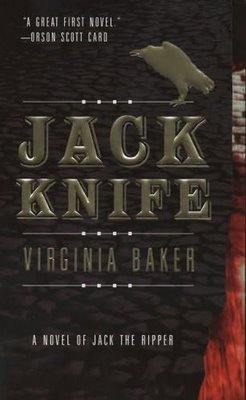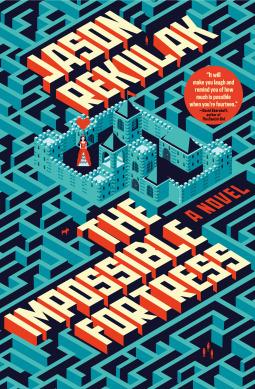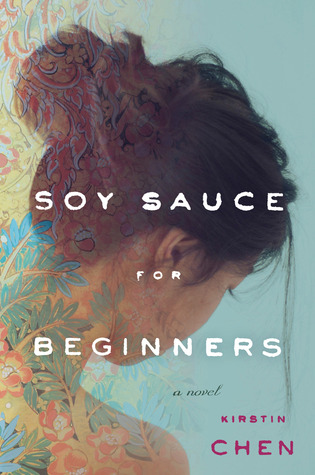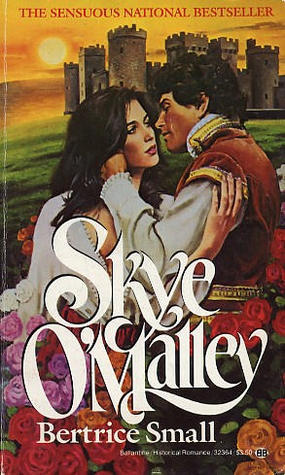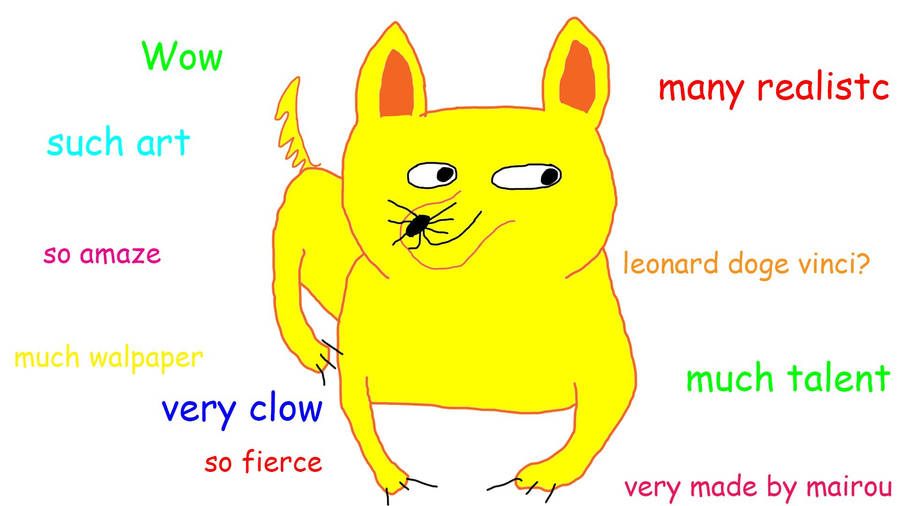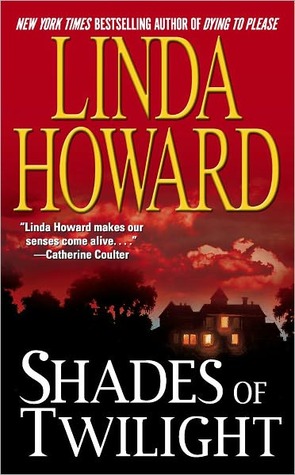Bertrice Small has a very distinctive style. So distinct, in fact, that you could probably make a drinking game of it, although I would advise against this, as the end result would inevitably be alcohol poisoning. When you pick up a Bertrice Small book, you
know that the hero and heroine are going to play a game of musical beds, until the end of the book where they're magically reunited with their 5+ children from various marriages in which their spouses were kind enough to politely off themselves in order to prevent inconvenience. You
know that there are going to be bad guys, identifiable by their nymphomania/frigidity and outlandish sexual fetishes if they're women or their penchant for doing it in the butt if they are men. You
know that the sex scenes are going to be outlandishly bad, with phrases like "honey oven," "love grotto," and "manroot" being used so liberally that you begin to feel like Regina from
Mean Girls as you think to yourself, "Oh my God, Bertrice, stop trying to make manroot happen. It's
not going to happen!"
**WARNING: SPOILERY SPOILERS BEYOND THIS POINT**
Skye O'Malley takes place in the 16th century. Our eponymous heroine is the youngest daughter of an Irish ship merchant/pirate, Dubhdara O'Malley. She's the prettiest of his plain daughters, so naturally she's his favorite, even though he desperately wants a son. Even though all the doctors advise against it, Dubhdara has sex with Skye's mom once more, unable to control his passions, gets her pregnant, and ends up killing her. That's okay, because adolescent back-up mom is ready and waiting in the wings. She's pretty cool for a stepmother, though, but Dubhdara O'Malley can go to hell.
Anyhoo, Skye O'Malley is a very familiar type of heroine for those of you who are into the whole bodice-ripper. She's independent and her traitorous-bodied person will not be controlled by any man - except for the crotch-hoisting alpha d-bags on parade, that is. They're the
only exception. We see this in how she staunchly rebels against her father's chosen husband for her, Dom, who is a d-bag. She thinks her father's right hand dude, Niall Burke, is pretty cute, though, and the two of them have some sensuous make out sessions and pledge their mutual adoration of one another. Niall wants to marry her but his father is titled and snobby and thinks a ship captain's daughter isn't a good enough catch for his son (a decision he rues in earnest once he lays eyes on her for the first time and sees how perfect her breasts are). Niall watches in despair as Skye is wedded to another man before his eyes, with her perfect breasts on display in an indecent wedding gown, and that's when he announces his intent to take
droit du seignur. Or as he puts it to Dom,
"Your life, or the wench's maidenhead" (6%).
They have a magical night together, but then Clan O'Malley conspires to tie him up and bandy him away because this marriage is important politically, and Niall's father has a wife chosen for Niall already (an almost-nun spirited away from the convent just before she took her vows). Skye is sent off to live with Dom who becomes increasingly abusive, and in keeping with true Small fashion, we know that he's the bad guy because he likes to do it up the butt. Also, he's having sex with his sister, Claire, because
why not pull a Jamie and Cersei Lannister for the fun of it? Why the hell not?
Niall weds Darragh and Skye gets fed up with Dom and ends up attacking him back, paralyzing him for life. She announces her intent to leave, saying that if they attempt to make demands on her, she'll announce their shame to all. Claire swears revenge. Honey Skye don't care. Darragh ends up going away for some reason...to become a nun again, I think, because she hates sex (and you can tell that she's the bad character because she's frigid and hates having sex with the hot studly muffin that is the alpha d-bag hero). Conveniently freed up, he and Skye become betrothed, but Skye tells him that she's going to be in control of her ships & they go on one of the charters...only to get wrecked!
I could make a joke about sinking ships here, but I won't. I'm above that. I'm a mature ad -
"I WILL GO DOWN WITH THIS SHIP. OTP OTP OTP OTP -"
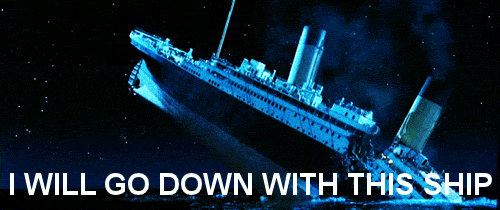
Skye winds up in Algiers, with amnesia, where she is sold into a harem run by an attractive Spaniard-turned-Muslim, Khalid El Bey (or as I like to call him, Khalid El Bae, because he is the most likable male character in this book). Khalid initially intends to turn Skye into a courtesan but she doesn't like being touched by his right-hand-woman, Yasmin, or the training eunuch, consenting to physical acts only with him. He decides that the harem life is wrong for the beautiful Skye, and instead decides to marry her, which angers Yasmin, who has been contriving to become one of his wives for years - and now that this becoming is a one-woman show, Yasmin has absolutely no intention of exiting stage left. After Skye becomes pregnant, Yasmin conspires with this captain dude named Jamil who wants to have Skye for himself. She wants him to help her kill Skye, thus freeing up Khalid for her. He agrees...but with a twist - he's going to drug Khalid, so that he will be in Skye's bed. So instead of killing Skye, the love-maddened Yasmin will kill Khalid, thus freeing up Skye for
him. My bae dies, and Yasmin is so distraught she kills herself after confessing all, and Skye is forced to escape from Algiers with the help of her friend Robert Small, but not before drugging Jamil in revenge with a powder that turns him impotent. I thought for sure that Jamil would appear again later on in the story, but nope, that's curtains for him. After this sequence,
we never see him again.
Meanwhile, Niall is in Majorca for some reason and meets this count whose wife was held hostage by pirates. He considers this a taint on the family honor and has never allowed his daughter to marry because of this, scaring off potential suitors by insinuating that she's the offspring of a gang-banged whore. Niall is enchanted by the barely-adolescent Constanza and after having sex with her in a field, announces to her father that her virtue is compromised before offering for her hand.
Skye lies low for a while with Robert for a while, who helps create a backstory for Skye with amnesia. He has the feeling that "Wife of the Whoremaster of Algiers" is not a title that will impress the Elizabethan court. So he comes up with a tragic story for her before they go to England, and with her riches she buys up property next to Geoffrey Southwood, who is entranced by her perfect bosoms and her utter disdain for him. He enters a bet with his friend that he can make her his mistress before the year is out, made more tempting because he has a feeling he knows who Skye really is and can blackmail her by threatening to ruin her young daughter's prospects by exposing her secrets.
But Geoffrey falls prone to the beauty of Skye and after having sex with her many, many times in many, many places, ends up marrying her. Niall comes to the wedding with his new bride and is horrified to see the ghost of his presumed-dead wife marrying another man. He wonders if it's her, or if it's one of her father's bastards. His preoccupation ends up isolating him from his wife, who begins to take up lovers. It turns out that Constanza is a nymphomaniac, and her mother was as well - yes, the countess wasn't actually a victim, she voluntarily had sex with all of her pirate captors because she didn't think her husband did a good enough job, and Constanza is cast in the same mold. She actually goes to work in a brothel under the pseudonym "Book Lady", acting out scenes from the Kama Sutra, and the brothel is run by none other than the Incesty Claire, who is thrilled at this chance at revenge!
There's a duel, and Niall kills one of the men who slept with his wife before taking a wound to the chest. Skye gets all her memories back and is devastated to learn that she was married to Niall and has two other children she totally forgot about. Geoffrey is jealous. There's a disease that kills off two of her children and her husband, but not before we're treated to the picturesque scene of Skye's servant hooking her fingers into Geoffrey's mouth to pull out the mucous clogging up his throat. Ew. With Geoffrey out of the picture, Robert Dudley starts sniffing around her skirts, before blackmailing her into sex. We know he's the bad guy, because he enjoys doing it up the butt and also because he makes Skye call him "Papa" during sex. Ew. Skye goes running to Queen Elizabeth and finds out that Elizabeth not only knows about this, but condones it, and then swears revenge.There's a scene with a giant, rapey orgy, involving a twelve-year-old girl and a dog. I'd say that this was a shock to me, but in one of Small's other books, BIANCA, there's a very similar scene involving a donkey. The book rapidly ends with piracy, imprisonment in the Tower, and a happily-ever after.
SKYE O'MALLEY is definitely not for the faint of heart. A lot of the male characters are unpleasant, even the alleged heroes. What Geoffrey did to his ex-wife and daughters was despicable. Niall was cruel to his other wives as well, and at several points comes pretty dang close to raping Skye. The only reason she isn't treated like human garbage is because she's beautiful. If you're not gorgeous, with heart-shaped face, sapphire-blue eyes, and perfect breasts, you're not worth the air you breathe, is that it? That's the status quo for most bodice rippers though, so Small can't really be faulted for keeping with the popular tropes of the time. The adolescent (or in some cases, even child) sex/rape is more troubling and difficult to stomach, but again, that happens in a lot of older romance novels - especially the medieval ones. That doesn't make it fun to read about, though. That dog scene, especially, was entirely unnecessary, and seemed done only to underscore what an utterly despicable person Robert Dudely was (as if we didn't know that already from his butt-happy ways). Also, Bertrice Small proves that she's too good for walking off into the sunset hand-in-hand; her happily reuniting couple indulge in a bit of lactation porn instead - because why not? Why the hell not?
My favorite parts of the book were actually the scenes that most people seemed to like least - the food and costume porn. Say what you like about the dubious content (and consent) in Small's books, the woman clearly had a passion for history, even if she wasn't always quite sure what she wanted to do with it. I think I'd have liked to peruse her home library and see what works of fiction and nonfiction inspired her to come up with some of the stories she did. There's beautiful descriptions of clothes and food in here that made me itch to go shopping. It's pretty hilarious, though, combing through the reviews. About half the people who read this book seemed to love it and the other half seem to loathe it entirely for the reasons I mentioned in the previous paragraph. Understandably so, I'd say.
I read this book for the
Halloween 2016 Reading Challenge I'm doing with the
Unapologetic Romance Readers group. One of the categories was "a romance written by an author who is dead" and sadly, Bertrice Small died last year. What a loss. I mean that, too. I have a love-hate relationship with her romances, but I do think it's cool that she had a style that was so distinctly her own. Few authors are capable of achieving that, and as much as I make fun of Small's style, I'm envious of it, as well. When her book went on sale for $1.99, I snagged it, because I knew immediately that she was the author I wanted to pay homage to in my challenge. If SKYE O'MALLEY was just 200 pages shorter and a bit better edited, I think I would have liked it a lot more, but it's still a worthy addition to the cringeworthy bodice ripper cannon. Read at your own risk!
2 to 2.5 out of 5 stars.











